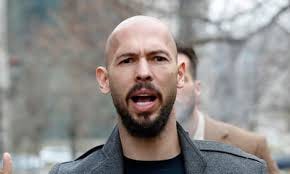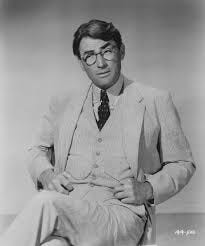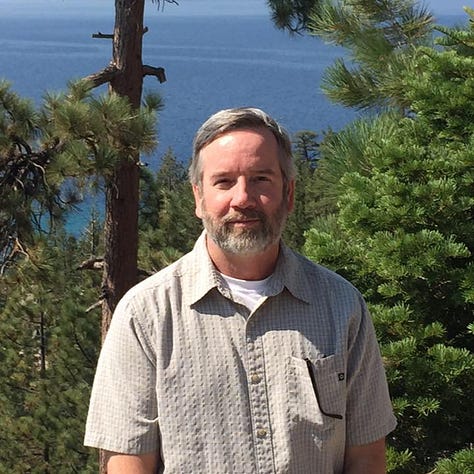


This is one of the most difficult essays I've ever written. Perhaps that seems absurd. After all I'm a retired White heterosexual male professional who has had all the breaks. My privilege is so complete, so all-encompassing, so transparent that it literally never enters my mind. The world caters to my needs and desires and I've benefited thoughtlessly throughout my sixty-seven years on earth.
And yet ask me to define what it means to be a man and my flesh crawls. Longing and shame surge to the surface of consciousness. "Man" and "masculinity" summon a panic attack.
It's not difficult to realize why. Random memories from youth and early adulthood reveal the sources of malaise: A ninth-grade bully who taunted me mercilessly when I refused to hit him back; a jock who sneered "what a wimp" when I couldn't complete a hand stand in a high school gym class; a reporter who described me as "a small, thin man" in an otherwise flattering newspaper profile early in my teaching career.
This painful reclamation project was inspired by Richard Reeves’s recent book, Of Boys and Men: Why the Modern Male Is Struggling, Why It Matters, and What to Do about It. He documents deficits in education, life chances, and mental health, especially among Black and working-class men. I’ve often wondered about my obligations as the father of two adult sons, a former college professor, and a concerned citizen. Why are those of us in secure standing so reluctant to speak to the challenges of masculinity? It turns out approaching the topic is like touching a flaming hot stove at the core of our being. We must consider losses, even traumas that it’s unmasculine to address.
I often think about my father, a son's inevitable starting point for a male identity. Dad was on the short side (5' 6") and self-conscious about it. He developed habits of the heart that almost certainly linked back to his stature—a pronounced tendency to take umbrage at small slights, an overreaction to perceived disrespect, a willingness to leave a job no matter how inconvenient for himself or his family if he sensed he was underappreciated. These are habits unfortunately recognizable in my own character. Too often men carry invisible chips of their own fabrication on their shoulders.
We've all been subjected to what I call masculine deformation, the rarely visible, typically tacit assumptions about our manhood that circumscribe our lives. From the moment we're born we learn the codes, customs, and habits of being male in American culture. We internalize archetypes of aggression and status-seeking that rise like ghouls from our unconscious. Whether it's the clothes we wear, the games we play, the words we use, the videos we watch, the behavior we're allowed, or the stories we're told, we answer to policing that never really goes away. We're all acting out a script we can barely access, let alone revise.
No one wrote about this challenge more thoughtfully than William Kittredge in his memoir Hole in the Sky. He tells of considering suicide by poisoned carrots intended for vermin on his family's ranch. He was led to that desperate thought by realizing he was badly miscast as the scion of a ranching empire. He preferred writing to riding the range, making books to making a living on the vast Kittredge spread in eastern Oregon. It all boiled down to a simple thought: He was a sissy, and sissies had no business running a cattle ranch.
You don't need me to tell you we're in a crisis of masculinity. Repeated mass shootings by pathetic broken men remind almost daily that manhood isn't working. Men are far more likely than women to lose their lives through deaths of despair—suicide, drug overdoses, and untreated health issues. The 45th president of the United States is a walking, talking parody of toxic masculinity and many voters embrace the id.
Too many men lack a sense of purpose, of value, of direction. It's easy to seek solutions in a misogynistic incel movement or athletics or fandom or video games or porn or online trolling or white nationalism. That's a reversion to the obvious, the tried and true, but frankly, those "solutions" don't provide much solace. These are temporary adrenalin rushes that might get you through a day but won't sustain you for a week, let alone a lifetime. It's all distraction and no substance.
Young men could try out multiple ways of finding meaning in their lives. They could channel their seemingly innate risk-taking and status-seeking into creativity and service. Alternative archetypes, male figures out of our own lives, history, film, and literature, can show the way. My father, who loved books, wrote a novel, and became a principled business manager for a Catholic archdiocese, lit a path for me. Atticus Finch, the ethical, loving father in To Kill a Mockingbird, shows how courage and ambition can be directed to serving racial justice. Michael B. Jordan updates that model by playing a defense attorney helping wrongly convicted murder suspects in Just Mercy.
Nature can provide challenge and solace for adrenalin junkies. Hunting, fishing, skiing, and hiking, those traditional male activities, carry far more meaning than cliché allows. They demand focus and effort, putting testosterone to the service of careful interaction with non-human life. Through physical effort men learn respect for other beings.
Men could also observe what works for women, tactics easy to enact yet often marked as off-limits for stoic men. We could prioritize relationships with friends and family, sustaining bonds that strengthen and salve. We could try getting together more often in situations that require neither overt or covert competition. For years I've thought about forming a men's book club and yet somehow always deferred because it seemed like something women do better (this from a retired English professor).
Above all men need to look out for each other and act on our compassion. We often see friends and acquaintances suffering loneliness or pain yet hesitate to reach out. l don't want to embarrass someone, or inconvenience them, or violate their space, or impugn their dignity, or whatever. The list of rationalizations goes on and on. We've all internalized them. A helpful rule: If you see signs of despair, act in the moment. Don't hesitate. Don't let the deep masculine deformation stop you. And by all means, if you (or I) need help, ask someone.
All this is not to deny ongoing inequities for women and minority and underemployed men. Nothing I've written can obscure the real struggles of those who do not benefit from affluent White male status. As Reeves points out, perhaps we can address two issues at once, helping men wean themselves from those masculine horror stories while clearing a space for others to thrive. Perhaps then a future writer could attempt an essay like this without nausea and fear.

Bill Van Vlack writes: Ken,
Thanks for sharing, as they say today.
I read a study in 1958 that summarized an interesting statistic, in 1850, an American man had a life expectancy of forty years and had to work his whole life to provide basic necessities for his family: food, shelter, water and clothing. He had no identity crisis and had few choices; his fate was established at birth. There were few exceptions.
The report went on to tell us that an American man in 1950 could live almost twice as long and only had to work twenty years to provide the same necessities for his family. The rest of his working life was spent earning money for things that were not necessities in 1850.
The writers projected an interesting statistic. They thought that by 2050, 2% of the population would be able to produce the necessities for everyone, working only twenty years. Everyone else would be involved in pursuits that had nothing to do with the basic needs of the 1850 family.
Of course, this was oversimplified, but our social studies teacher thought it was important for us to know that we were going to have to be our own men (and women.) In retrospect, he had an amazing insight into the world we were about to face.
My own father struggled with alcoholism and a wife that earned more money than he did. He never found himself and suffered most of his short life.
I found that my inner demons were only quiet when I had a hammer in my hand. I passed on college, joined the Navy, and went into construction. Over the years I tried teaching, wholesale and retail sales and electrical engineering. I was good at all of them, but never felt like a man if I wasn't building something.
My choices served me well and the demons stayed inside. They only come out in those moments when I sit alone in the dark.
I have so many stories I would like to tell you, but I think this one explains my armor against twenty-first century emasculation: I decided to buy a purse, not a back-pack or a saddle bag, but an obvious purse. I was in Walmart and some cowboy was openly snickering at my purse. I was not strong enough to walk away. I looked him in the eye and drawled in my best Texas accent, "I did a tour in Vietnam, worked construction for fifty years, raised six children from two wives and we have eight grandchildren. What makes you think I give a shit about your opinion?"
He averted his eyes and backed away. It helped that I was still close to six foot and two hundred pounds. The problem is, I knew I really cared about his opinion, or I wouldn't have talked to him at all.
Once again, thanks for sharing and waking up my inner demons,
Bill
Russell Rowland, a fine writer from Billings, Montana, has posted a thoughtful commentary about how the Yellowstone television series plays into myths of Western masculinity, with painful consequences. Check out Russell's podcast here: https://www.ypradio.org/show/56-counties/2023-04-04/56-counties-from-the-virginian-to-yellowstone